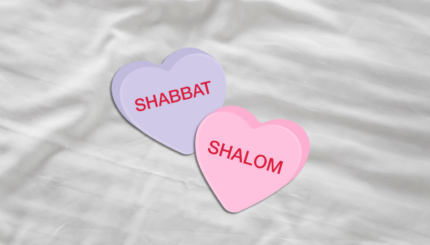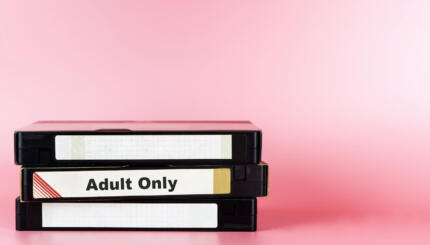On Shabbat Noach (the Shabbat when Parshat Noah was read) I marked my 70th birthday by reciting haftarah at the Hendon Partnership Minyan in Northwest London. This was not something I had ever thought of doing, nor had I ever wondered whether I would be capable of doing it. The experience was even better than I had expected, and so was the journey.
We attended our first partnership minyan service in July and I felt as if I had come home. It was the same service that I have loved all my life, but which has meant less and less to me as I became ever more aware of being an unnecessary member of the audience. At the partnership minyan everyone present was involved, whether by leading parts of the service, reading Torah or simply following and singing out loud. My 70th birthday was approaching and I thought that learning and reciting a haftorah would be a wonderful way to celebrate it.
My Hebrew birthday is 29 Tishrei and Hendon Partnership Minyan had a service planned for the following Shabbat. My husband, Neil, has taught several Bar Mitzvah boys, and he now set about teaching me the haftarah for Noach. At first we told no one what we planned, though when we went on holiday with our children and their families we had to explain why we were disappearing for half an hour each day.
It was slow going at first, learning the Hebrew text (Isaiah 54:1-55:5) and the musical notation, which is so very different from Western music, each note being in fact a phrase. One of the obstacles I had to overcome was that some of these sounded wrong in my soprano pitch – surely they should only be sung by a male voice? Another was that, although I can read Hebrew, I am slow at working out words that I don’t know.
Neil was very patient and we worked hard together. At the next Hendon Partnership Minyan, in September, I asked if I would be allowed to recite the haftarah for Noach. The reaction was extremely positive and encouraging, even to the extent of being assured that, if I lost my nerve at the last moment, someone else would be able to take over.
Neil and I both enjoyed our daily practice sessions. I eventually learnt to sing the notes correctly and astonished myself by being able to wrap my mouth around the longer words. I also studied the translation. Neil taught me how to combine some words and notes together in pairs and the importance of putting the accent in the right place. His mantra is “The music helps the words, and the words help the music.”
The day came and I was called up for maftir, the final aliyah, and recited the blessing. I could hardly believe that I was standing in front of an open Torah scroll! I could see the text for the first time in my life. I touched a cloth to the first and last words of the portion and then kissed it, and held the handles while the portion was read. This was probably the most inspiring and moving part of the whole experience.
I was nervous as I started to recite the haftarah. But after 10 weeks of daily practice the words and music were firmly fixed in my head and by about halfway through the 22 verses my apprehension had eased. I concentrated hard, anticipating the trickier phrases and notes. As I came to the end of the final blessing, I felt a mixture of achievement and joy.
I would encourage any other woman who wished to do something similar, regardless of her age or her knowledge of Hebrew. It was a marvelous way to celebrate reaching three score years and 10.
Noach
Pronounced: NO-akh, Origin: Hebrew, the biblical character Noah.
Shabbat
Pronounced: shuh-BAHT or shah-BAHT, Origin: Hebrew, the Sabbath, from sundown Friday to sundown Saturday.
Tishrei
Pronounced: TISH-ray, Origin: Hebrew, Jewish month, usually coinciding with September-October.
Torah
Pronunced: TORE-uh, Origin: Hebrew, the Five Books of Moses.



